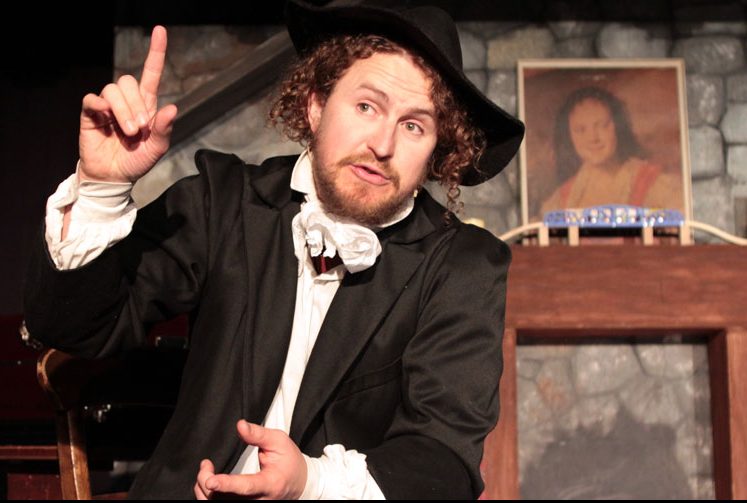Contemporaries may have been cruel, but Gary McNair has been very kind to William Topaz McGonagall, the man popularly known to history as the worst poet in the English language. This joyous biography, told in the same strained doggerel that McGonagall himself employed, gives the Dundee poet a new legacy as an unlikely champion for the ordinary working man.
McNair is well known round these parts for his cosy, heartwarming storytelling about outsiders and dreamers. Usually he draws heavily from his own personal experience, but it’s a nice new angle for him to be plundering history like this. McGonagall of course fits the mould of many of McNair’s previous subjects – a man both endlessly hopeful and hopelessly deluded. Or is he? Maybe this loser got something right the rest of us haven’t? After all, we’re still talking about him a century and a bit later.
The bare biography of the man is this: born to Irish parents in Edinburgh, he flits round Scotland with his family until fetching up in Dundee, where the weaving industry means jobs are plentiful. William lives an uneventful life there for forty years, all the while harbouring a brighter vision for his life, one where his artistic genius is fully recognised. In his fifties, he finally goes for it and gets published in the local paper, but to general ridicule rather than praise. Undeterred, he takes his poetry to the stage, and braves the insults and abuse physical and verbal, since it’s the only way the old man can make any money.
McNair is a consummate weaver of yarns, his Jackanory-perfect storytelling augmented by skilled use of dynamics in a room he’s played many times. But he gets extra mileage out of this story via the deliberately bad poetry that he uses to ape McGonagall with obvious affection. Clanking rhymes and runaway metre are all the funnier for being deployed by a man who actually knows what he’s doing. It’s Les Dawson’s piano sketches in verbal form. And like a comic, McNair nails the timing, hanging off delivering rhymes until we’ve jumped ahead and guessed their naffness, or double-bluffing us with something from leftfield.
Yet though no attempt is made to rehabilitate McGonagall’s reputation as an actual poet, McNair is quick to pick the pathos from the story and to go gentle on him. Thus, while mocking the verse, we’re encouraged to admire the determination of a working man who didn’t see genius and fame as the sole preserve of the upper classes. He wanted his fifteen minutes in defiance of his status. “All men live and all men pass,” sings McNair’s sidekick Brian James O’Sullivan in one of the accompanying musical moments, “you seldom get a story if you’re working class”.
That’s not the only sympathetic side to the piece either. There’s a return to the theme of bullying that McNair visited in Donald Roberson Is Not A Stand-Up Comedian as McGonagall survives pelting with vegetables and worse in pursuit of a wage from his work. The story also touches on the harshness of ageing, and there’s even a nod to the anti-Irish prejudice that blighted lives. McNair is very well atuned to people’s struggles.
For that reason, McGonagall’s Chronicles is a comic piece of surprising depth. We laugh, but not really at McGonagall. This supposed buffoon of Victorian poetry emerges as an unlikely folk hero, thanks to a modern day writer who definitely has got the gift.


Comments